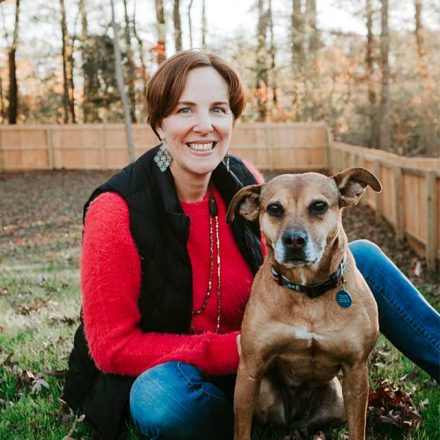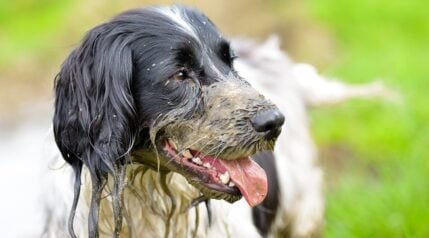Welcoming a new puppy into your home is one of the most exciting things you’ll ever do. As a dog owner, it’s your responsibility to ensure that your wriggling little ball of fluff gets the very best start in life so that he grows up healthy and strong.
There are a number of different vaccines your puppy will need, and you’ll want to make sure that you are checking up on your puppy’s growth. You’ll also want to make sure you can keep an eye out for any potential problems.
Once your puppy is home, one of your first jobs is to arrange for your new canine best friend to have his primary veterinary checkup.
Choosing A Vet
Don’t just pick the first vet that a Google search throws up. Always do your research when choosing a vet. That’s important, as your vet will be the first emergency responder throughout your dog’s life. The American Veterinary Medical Association (AVMA) calls this the “VCPR” or Veterinary Client Patient Relationship.
Wellness visits to the vet clinic will continue for the whole of your dog’s life. A vet who has known your dog since puppyhood will be best-placed to spot any medical conditions that your pet develops in later life, and early diagnosis and treatment can sometimes mean the difference between a quick cure and a chronic problem.
Ask dog owners in your area for recommendations, and if your puppy’s breeder is local, ask them which vet clinics they prefer in your area. Some vet clinics offer puppy welcome packs, and many run puppy socialization clinics, which can get your pup off to a great start.
Visit the vet clinic before you get your puppy. Are the support staff friendly and helpful? Is the reception area clean and tidy? Is the vet happy to take time to chat with you and answer your questions? If the answer to all of these questions is “yes,” then you’ve probably found the perfect vet clinic to take care of your new puppy for you.
Remember to ask what out-of-hours arrangements the clinic has for emergencies. Animals have a habit of developing conditions that require urgent treatment outside of regular clinic opening times, so you’ll need to know that you can get a vet to see your puppy outside of 9 am to 5 pm if necessary.
Some vet clinics run schemes that allow owners to make a regular monthly payment that covers their pet’s routine annual treatments, including vaccinations, worming, flea medication, etc. A scheme like this will help you to save money over the long term, so it’s worth choosing a clinic that offers one.
When Should You Have Your First Checkup?
If you buy a pedigree puppy from a breeder, the requirement for you to arrange an immediate vet exam for your new puppy will be included on your contract of sale, and should usually take place within three days of you collecting your puppy. Also, under the terms of your contract of sale, you will be expected to take your dog for an annual physical exam and have him vaccinated.
Puppies from shelters or rescue centers are often of unknown origin and may be affected by diseases, especially if the pups were saved from a puppy mill. So, it’s vital that you have your new puppy looked at right away by a good veterinarian.
Vets do get very busy, so it’s a good idea to make an appointment for your puppy’s first checkup before you collect your new pet, especially if there’s a deadline included in the breeder’s contract of sale.
What To Expect At Your First Visit
When you make an appointment for your puppy’s first health check, you should be asked to bring a sample of your pup’s feces so that the vet can test the sample for the presence of worms. Remember to call into the vet clinic to collect a sample jar a day or so before your appointment.
Here’s what should happen at your puppy’s first vet checkup:
- Your puppy should be weighed.
- The vet should listen to your puppy’s lungs and heart with a stethoscope.
- Next, the vet will gently palpate your puppy’s lymph nodes and abdomen.
- Your puppy’s temperature will be taken.
- The vet will examine your puppy’s eyes, nose, ears, paws, and genitalia.
- Your puppy’s coat and skin will be examined.
- The vet will check your puppy’s mouth and teeth.
Following the examination, the vet should ask general questions about your puppy’s history and will answer any questions you have. The vet will also run through crucial issues such as de-worming, microchipping, de-sexing, and vaccinations.
If you have any paperwork from the puppy’s breeder or rescue shelter, remember to bring the documents with you so that the information the papers contain can be included in your dog’s file.
Your vet may also discuss pet insurance with you. The average cost of pet insurance for a dog is around $50. It could mean the difference between life-saving treatment and euthanasia should your pet develop a serious condition that costs thousands of dollars to treat, which you may not be able to afford. And while your vet may have a partnership with one company, remember there are dozens of providers, so be sure to do your research to find the best dog insurance for your family.
The cost of a veterinary consultation can vary quite widely, depending on where you live. Puppy examinations generally cost around $50.
Home Health Checks

Between routine veterinary wellness checks, you can give your puppy a home exam. A home examination can help to highlight potential issues that might need veterinary advice.
A basic home health check takes only a few minutes to carry out and can be included in your puppy’s grooming routine.
So, here’s how to give your puppy (or adult dog) a home health check.
Eyes
- Your pup’s big, loving eyes should be clear and bright.
- The white part of the eyes (sclera) should not be yellow or bloodshot.
- The cornea (clear front surface of the eye) should be clear, not cloudy.
- The pupils should be equally dilated.
- The eyes should be moist.
- There should be no discharge present.
- Your puppy should be able to blink without squinting.
- The eyelids should not be swollen
- The margins of the eyelids should be straight, rather than curling in or out.
Nose
- Your puppy’s nose should be moist, not dry and cracked.
- The nostrils should be clear, not crusty or runny.
- There should be no sores present around the nose.
- Your puppy’s nose should be its natural color. (Most dogs’ noses are black.)
Ears
- Check your puppy’s ear flaps (leathers) for sores or injuries.
- Look down into the ear canal for signs of waxy debris, reddening, or sores.
- If your pup’s ears smell “off,” he could have a yeast or bacterial infection or ear mites.
Teeth & Gums
Gently pull your puppy’s lips into a smiley grin and take a look at his gums and teeth.
- Gums should be salmon pink and free from ulcers, lumps, and bumps.
- Your puppy’s teeth should be pearly white. Teeth that are brown or yellow need veterinary attention. The discoloration is caused by an accumulation of tartar, which should be removed to prevent periodontal disease from developing.
- If your furry friend has “doggy” breath, he most likely has gingivitis or some other oral problem that needs urgent veterinary attention.
Jaw, Neck & Chest
- Check under your dog’s jaw where it hinges for lumps that could indicate swollen salivary glands or lymph nodes.
- Gently feel your dog’s neck and chest for lumps or crusty scabs.
Trunk
- Run your hands all over your dog’s chest, back, and belly. Be on the lookout for any skin problems such as dry, flaking skin, sore patches, and greasy areas.
- Lift and part the fur carefully to look for ticks and fleas.
- Continue checking your puppy’s legs from top to bottom, including in his groin area. You’re looking for smooth swellings that could indicate enlarged lymph nodes.
Heart
Although most owners don’t own a stethoscope, you can still check your dog’s heart rate.
- Put your hands on either side of your puppy’s chest so that you can feel his heart beating.
- The heart rate should be between 70 and 120 beats per minute.
- The heart rhythm should be regular.
- Your puppy’s breathing should be consistent and effortless.
Paws & Claws
With your puppy lying on his side, check his paws.
- The pads should be smooth with no cracks in the surface.
- The nails should be short enough that they don’t “tick” on the floor when your puppy walks.
- Look for redness or swelling between your puppy’s toes that could indicate an infection or the presence of skin mites.
If your puppy or dog fails any of your home health checks, give your vet a call and have your pet checked over by a professional.
When To Call The Vet
Hopefully, your puppy will enjoy a happy and healthy life, and your veterinary visits will be for routine health checks and vaccinations only. However, there are some occasions when a veterinary visit is essential:
- Diarrhea and vomiting – Unfortunately, puppies and adult dogs do suffer from attacks of vomiting and diarrhea from time to time, especially if they’ve eaten something they shouldn’t have. However, if diarrhea and/or vomiting don’t clear up by themselves after a few hours, you should call your vet. There are a few causes of potentially serious gastric problems, including gastroenteritis, poisoning, and ingestion of a foreign object.
- Poor appetite – Most dogs are food lovers. So, if your puppy loses his appetite, you should be concerned, and a call to your vet is in order, especially if your furry friend seems depressed and lethargic too.
- Drinking to excess – Your dog should always have access to clean, fresh water. However, if he begins drinking excessive amounts, that could be an early indicator of a health problem such as diabetes, kidney disease, or hypothyroidism.
- Irregular urination – If your puppy appears uncomfortable when he pees, asks to go out more frequently than usual, or struggles to pee, he could have a urinary tract infection that will require a course of antibiotics to clear it up.
Annual Checkups
As well as the health checks you do at home, your dog needs to have an annual veterinary exam. Yearly health checks usually coincide with your dog’s annual booster vaccinations so that you only need to make one visit to the vet clinic.
During your dog’s annual checkup, your vet will review your pet’s weight, overall body condition, heart, lungs, and teeth. De-worming and flea protection programs should also be discussed during your visit.
Tips To Prepare Your Puppy For The Vet
A visit to the vet clinic needn’t be a stressful ordeal for your dog, for you, or the vet. Here are some top tips for making your dog’s annual health checkup a pain-free experience for all parties:
- Attend puppy socialization classes at your vet clinic so that your puppy associates visits to the vets with a fun experience right from the get-go.
- Call your vet clinic with your puppy for social visits. That way, your dog will learn to associate calling at the clinic with getting lots of cuddles and treats from the nurses rather than just for an examination or injection.
You’ll need to get your puppy used to traveling in your car or truck as soon as possible. Use a car crate or fit your puppy with a proper travel harness for your safety and that of your pet. If your puppy is confident and comfortable with car travel, a trip to the vet clinic will be a fun experience rather than an ordeal.
Some puppies do get car sick until they’re used to the sensation of riding in a vehicle. Your vet will be able to prescribe an anti-sickness medication that you can give to your puppy before each journey. Once your dog gets older, any car or motion sickness usually resolves by itself.
Final Thoughts
Before you collect your new puppy and embark on your exciting new life together, you must have him checked over by a good veterinarian. The vet will make sure that your puppy is in good physical condition and is free from any obvious inherited physical defects. You will also be given advice on important health issues such as de-worming, flea control, de-sexing, and vaccinations.
After your puppy’s initial health check, it’s up to you to monitor your pet at home. Provided your puppy is happy and remains in good health, a few “social visits” to the vet clinic are all that are required until your pet’s annual vaccinations and examination are due.
For newbie puppy owners, bringing that helpless, fluffy bundle of fun home for the very first time is an exciting but somewhat daunting experience. If you have any concerns at all or you want to ask some questions about your new puppy’s health, always contact your vet clinic right away. Even your vet was a first-time pet owner once, and he will understand your anxieties only too well.






Thanks for these tips on how often to take your puppy to the vet. I am thinking about getting a golden retriever puppy soon. I’ll have to make a vet appointment for them as soon as I get them like you suggested.
Oooh, what a wonderful life partner a new Golden puppy will be. Hope you are able to find the right one for your home soon. Enjoy!